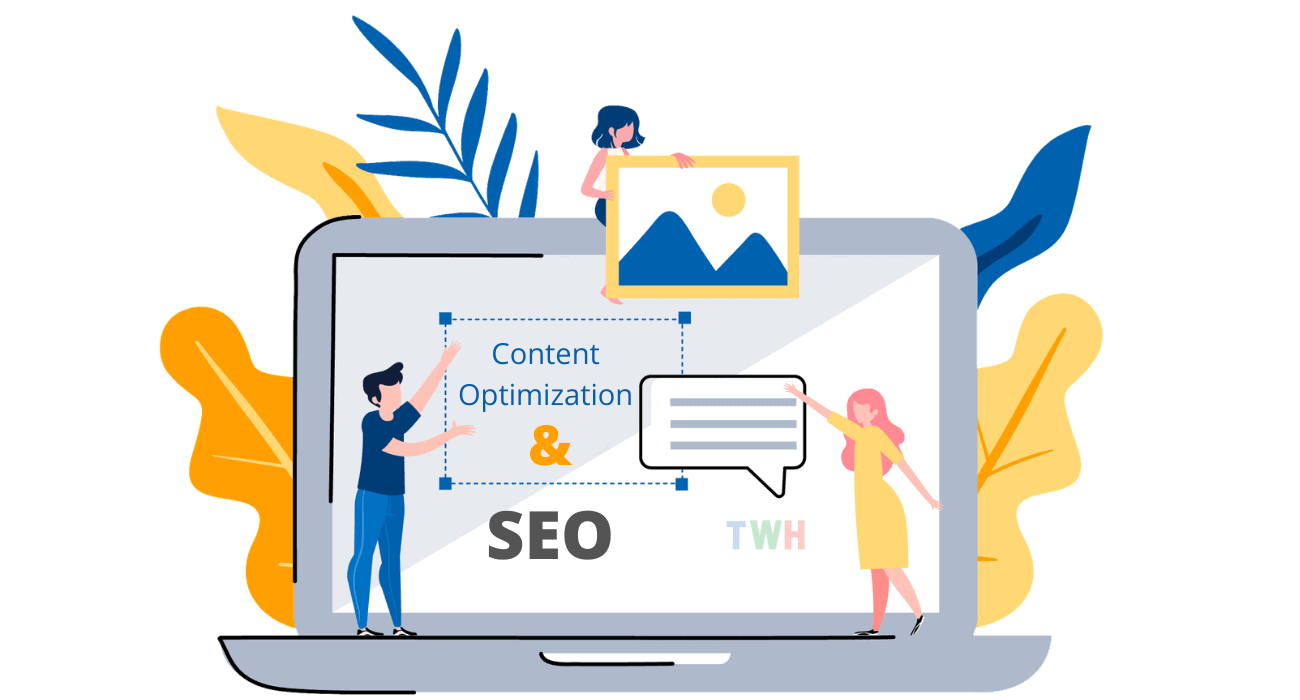This article will discuss how businesses can optimize their content for search engines to improve their online visibility and increase traffic to their website. It will cover various techniques for on-page and off-page optimization, as well as the importance of keyword research, meta tags, and link building.
In the digital age, having a strong online presence is essential for businesses to succeed. One of the key factors in building an online presence is optimizing your content for search engines. Search engine optimization (SEO) is the process of improving the quality and quantity of traffic to your website through organic search results. By optimizing your content for search engines, you can increase your online visibility, attract more visitors to your website, and generate more leads and sales.
Optimizing your content for search engines is a complex process that involves various techniques, including on-page optimization, off-page optimization, keyword research, meta tags, and link building. In this article, we will discuss these techniques in detail and provide tips on how businesses can optimize their content for search engines.
On-Page Optimization:
On-page optimization refers to the process of optimizing the content on your website to make it more search-engine friendly. It includes various techniques such as optimizing the title tags, meta descriptions, header tags, images, and content. The following are some tips for on-page optimization:
- Conduct Keyword Research: Keyword research is the process of identifying the keywords and phrases that your target audience is searching for. By incorporating these keywords into your content, you can increase your chances of ranking higher in search engine results pages (SERPs).
- Optimize Title Tags and Meta Descriptions: Title tags and meta descriptions are HTML elements that provide information about the content of your website. They appear in the SERPs and influence click-through rates. By optimizing your title tags and meta descriptions, you can improve your click-through rates and drive more traffic to your website.
- Use Header Tags: Header tags (H1, H2, H3, etc.) are HTML elements that define the structure of your content. By using header tags, you can make your content more readable and improve the user experience.
- Optimize Images: Images can improve the visual appeal of your website, but they can also slow down your website if they are not optimized. By compressing your images and adding alt text, you can improve the load time of your website and make it more accessible to search engines.
Off-Page Optimization:
Off-page optimization refers to the process of improving your website’s authority and relevance through external links. It includes techniques such as link building, social media marketing, and online reputation management.
The following are some tips for off-page optimization:
- Build High-Quality Backlinks: Backlinks are links from other websites that point to your website. By building high-quality backlinks from authoritative websites, you can improve your website’s authority and relevance, which can increase your search engine rankings.
- Engage in Social Media Marketing: Social media marketing involves using social media platforms to promote your content and engage with your audience. By creating shareable content and building a strong social media presence, you can attract more visitors to your website and improve your online reputation.
- Monitor Your Online Reputation: Your online reputation can impact your search engine rankings. By monitoring your online reputation and addressing negative reviews or comments, you can improve your online reputation and attract more visitors to your website.
Keyword Research:
Keyword research is an essential part of the SEO process. It involves identifying the keywords and phrases that your target audience is searching for and incorporating them into your content.
Keyword research can help you understand your target audience, identify content gaps, and improve your search engine rankings. The following are some tips for conducting keyword research:
- Use Keyword Research Tools: Keyword research tools such as Google Keyword Planner and SEMrush can help you identify keywords and phrases that are relevant to your business and have a high search volume.
- Identify Long-Tail Keywords: Long-tail keywords are longer and more specific phrases that are less competitive but have higher conversion rates. By incorporating long-tail keywords into your content, you can attract more targeted traffic to your website and improve your conversion rates.
- Analyze Competitor Keywords: Analyzing your competitor’s keywords can help you identify content gaps and opportunities. By identifying the keywords that your competitors are ranking for, you can create content that targets the same keywords and improve your search engine rankings.
Meta Tags:
Meta tags are HTML elements that provide information about the content of your website. They appear in the SERPs and influence click-through rates. The following are some tips for optimizing meta tags:
- Use Descriptive Titles and Meta Descriptions: Your title tag and meta description should accurately describe the content of your website and include relevant keywords. By using descriptive titles and meta descriptions, you can improve your click-through rates and attract more traffic to your website.
- Keep Your Title Tag and Meta Description within Character Limits: Google displays a maximum of 60 characters for the title tag and 160 characters for the meta description. By keeping your title tag and meta description within these character limits, you can ensure that they appear correctly in the SERPs.
Link Building:
Link building is the process of acquiring backlinks from other websites to improve your website’s authority and relevance. The following are some tips for link building:
- Build High-Quality Backlinks: High-quality backlinks are links from authoritative websites that are relevant to your content. By building high-quality backlinks, you can improve your website’s authority and relevance, which can increase your search engine rankings.
- Avoid Black Hat Link Building Techniques: Black hat link building techniques such as buying links or participating in link farms can result in penalties from search engines. It is important to avoid these techniques and focus on building high-quality backlinks.
- Diversify Your Backlink Profile: Diversifying your backlink profile by acquiring links from different types of websites can improve your website’s authority and relevance. This can include acquiring links from news sites, blogs, social media platforms, and industry directories.

source: Google Images
Conclusion
Optimizing your content for search engines is a critical component of any digital marketing strategy. By following the tips outlined in this article, businesses can improve their online visibility, attract more visitors to their websites, and generate more leads and sales.
Remember, SEO is a continuous process that requires ongoing effort and dedication. By staying up-to-date with the latest SEO trends and best practices, you can stay ahead of the competition and achieve long-term success in the digital age.

